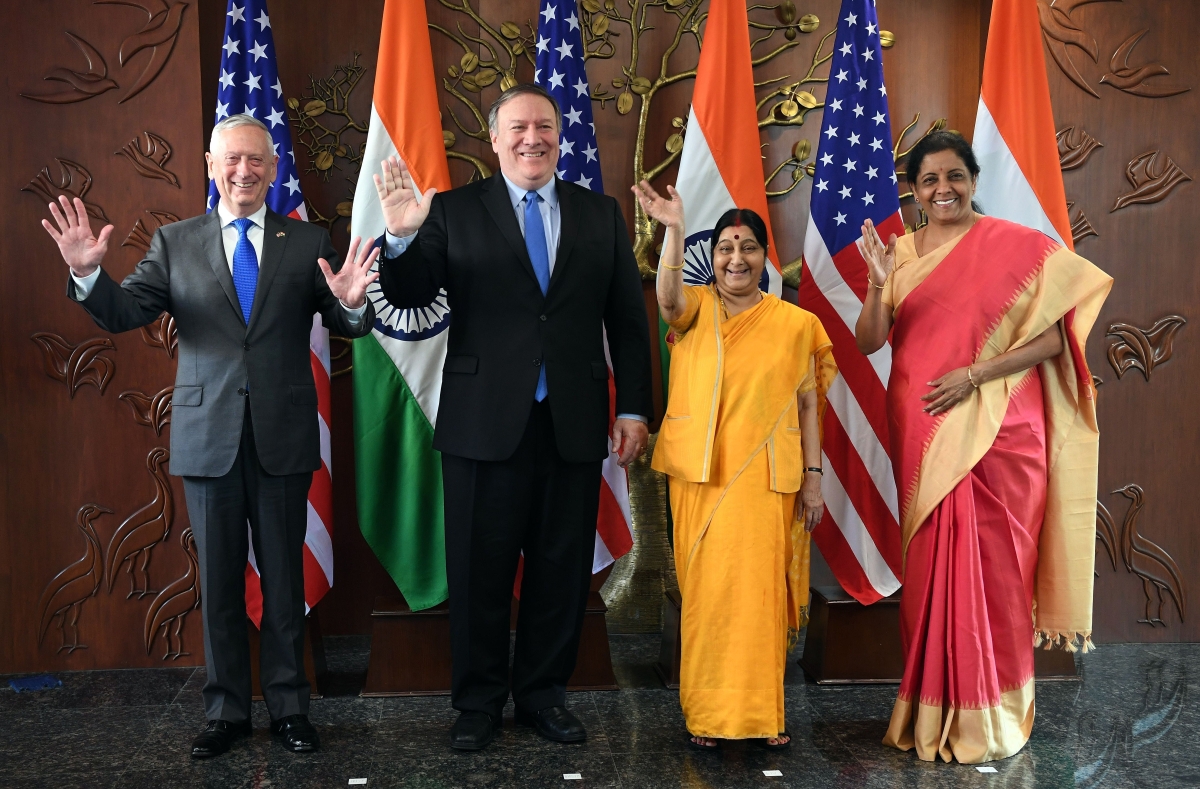Tensions, Many Exacerbated by Trump, Overshadow High-Level U.S. Talks in India
Opinion in World Politics Review

U.S. Secretary of Defense Jim Mattis (L), U.S. Secretary of State Mike Pompeo (2L), Indian Foreign Minister Sushma Swaraj (2R) and Indian Defense Minister Nirmala Sitharaman (R) pose for a photo prior to a meeting in New Delhi on September 6, 2018. U.S. President Donald Trump's top two envoys were expected September 6 to press India not to buy Russian military equipment or Iranian oil, while seeking to bolster ties as China grows more assertive in the region. Mmatt
Prakash Singh—AFP/Getty Images
This is an excerpt from an op-ed that was originally published by World Politics Review.
What a difference a year makes. Last October, then-Secretary of State Rex Tillerson delivered a major policy speech on U.S.-India ties and the critical role India would play in the Trump administration’s new Indo-Pacific strategy. A month later in Vietnam, at the annual summit of the Asia-Pacific Economic Cooperation forum, President Donald Trump championed India’s role in the region—even though it’s not a member of APEC—signaling that he was serious about accelerating strategic cooperation with India. But now, with Secretary of State Mike Pompeo and Defense Secretary James Mattis in New Delhi this week for high-level talks with their Indian counterparts—the so-called two-plus-two ministerial dialogue—the relationship is adrift, weighed down by several disagreements and with little momentum toward that far-reaching strategic partnership.
What went wrong? Part of the answer is circumstances, but Trump’s slow staffing decisions, his prioritization of other issues, and his fixation on short-sighted trade disputes has left the Indian government disillusioned. The Trump administration has fumbled an opportunity to cultivate better ties with India, which has always been a tricky U.S. relationship. It can still avoid the pitfalls ahead, but the kind of progress initially hinted at by Tillerson and others a year ago now seems out of reach.
The talks finally taking place today symbolize what has gone wrong. The United States postponed the meeting twice. The transition from Tillerson to Pompeo led to the first delay; the second postponement came when Trump asked Pompeo to visit North Korea to engage in nuclear diplomacy instead of attending the scheduled July 6 dialogue with his Indian counterparts in Washington. While India has been patient, its leaders have surely begun to see that they are not high on Trump’s priority list. The fact that Trump has yet to appoint an assistant secretary of state for South and Central Asia is just another signal that his administration does not feel any urgency in expanding diplomatic engagement in the region.
